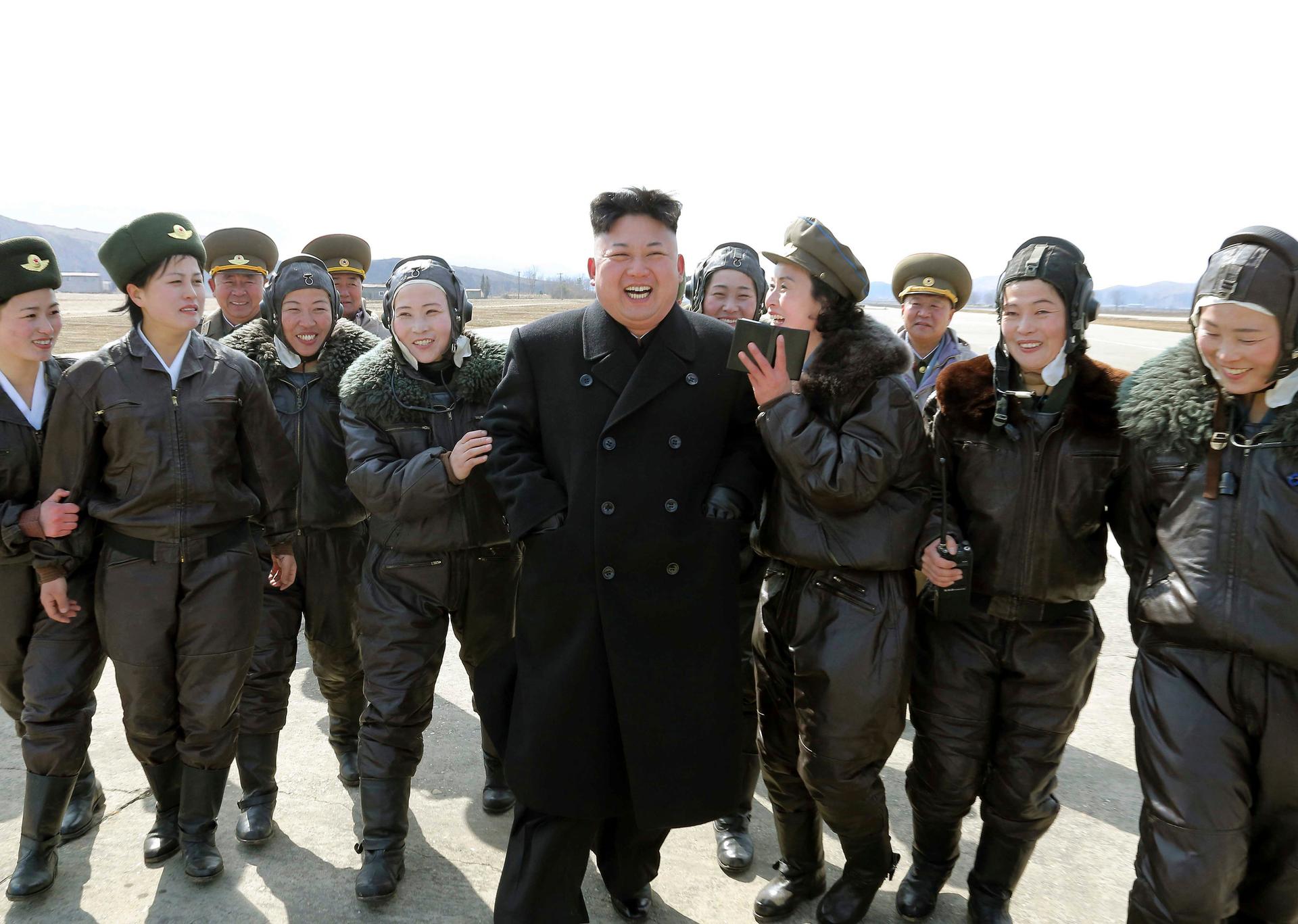When Kim Jong Un wants you to vote, he subjects you to poetry
North Korean leader Kim Jong Un supervises a flight drill of the KPA Air and Anti-Air Force Unit 2620, in this undated photo released by North Korea’s Korean Central News Agency.
Want to goose your voter turnout numbers? In North Korea, the answer is poetry. State media in North Korea is reportedly using poetry to whip the electorate into a voting frenzy ahead of polling day on March 9.
Poets on the Central Committee of the Writers Union of Korea have published election-themed poems with titles such as “The Billows Of Emotion And Happiness,” “We Break Into Cheers From The Bottom Of Our Heart” and “We Go To The Polling Station,” according to the BBC. State television is also said to be airing the patriotic "Song Of Election" in between programs.
(Editor's note: The Global Scan can be delivered straight to your inbox every weekday. Just register and sign up today.)
Russia plays its trump card against Ukraine
Gazprom, the Russian energy company, has warned Ukraine’s interim government it must pay its outstanding bill — or they will shut down the country’s gas supply. Gazprom says Ukraine owes $1.89 billion, according to Agency France Presse. Chief Executive Alexei Miller said “either Ukraine pays the debt and pays for current supplies, or there is risk of returning to the situation at the start of 2009" — that's when the supply of gas was last shut down. The 2009 incident also seriously affected European gas supplies.
This time, though, Gazprom is saying it will not suspend transit shipments of gas to Europe. The 2009 situation was resolved when Russia agreed to cut the price it charged Ukraine for gas, in exchange for a 25-year extension of its lease on the Sevastopol naval base that's now at the center of the Crimean dispute between the two nations.
A lesbian couple flees persecution in Africa for the US
Draconian laws criminalizing homosexuality in Uganda and Nigeria have been in the news recently. But those are far from the only African countries that persecute gay people. PRI’s The World heard from Carine and Gertrude, a lesbian couple in their 30s from Cameroon — where it’s also illegal to be gay.
They have been together for several years and have a baby daughter. Gertrude’s appearance in a documentary about the country’s small gay community led to death threats. Last year, one of their activist friends was murdered. So they fled and are living in a homeless shelter in San Francisco, working to build a new life with greater freedom.
He left Libya to make a name for himself — as a jihadi figther in Syria
As the conflict in Syria enters its third year, more young men from abroad are travelling there to fight for the "Islamic revolution." One of them is 15-year-old Ayoub, who left Libya for Syria in December 2013. His older brother Mohamed spent six weeks in the Turkish border town of Killis, trying to contact him and bring him home.
Mohamed says he blames himself because he was celebrated for fighting in the Libyan revolution, and he thinks that influenced his impressionable younger brother. He spoke to PRI's The World’s Marine Olivesi about how he has lost his brother to those who peddle the dream of martydom.
Even the NSA spies hate being spied on
Supporting your staff through difficult times is part of running a serious organization. At the NSA, "Ask Zelda’ is there to help. Zelda answers employees’ anonymous questions in columns that are published on an internal Intranet site, according to a report posted on Glenn Greenwald’s new site, The Intercept.
What kind of problems do the people spying on other people have? Turns out, they're fed up of being spied on! In a column from September 9, 2011, a worker who refers to himself as “Silenced in SID” — referring to the Signals Intelligence Directorate, the heart of the NSA’s surveillance operations — says the morale in his department is being lowered by the fact employees are required to report back to their bosses on personal conversations they have with colleagues.
What we're seeing on social
Weather around the world
Storms in India in recent days have dealt a setback to Indian agriculture. According to a report from Reuters, hail and heavy rains will cut into the yields for Indian crops and push back the harvest. The damage may force India to import more food, driving up prices.
What goes around, comes around?

We want to hear your feedback so we can keep improving our website, theworld.org. Please fill out this quick survey and let us know your thoughts (your answers will be anonymous). Thanks for your time!
